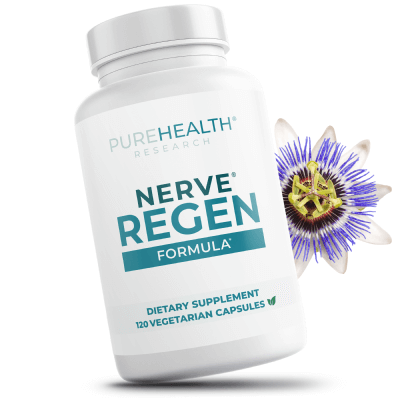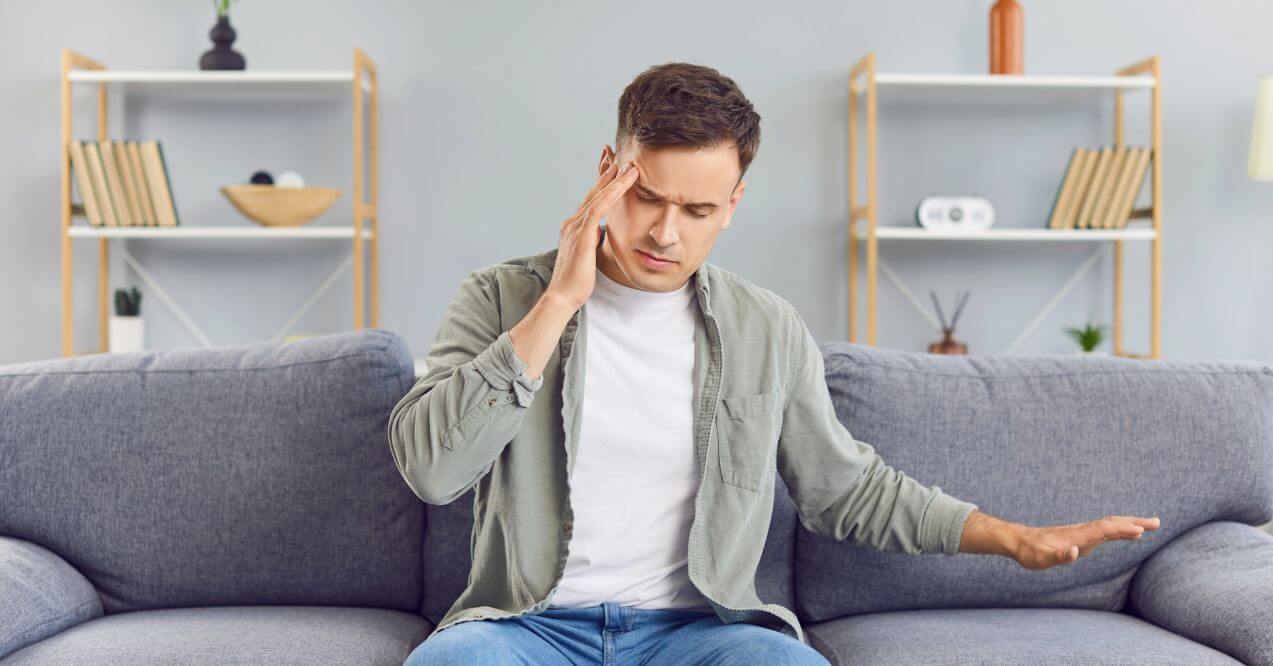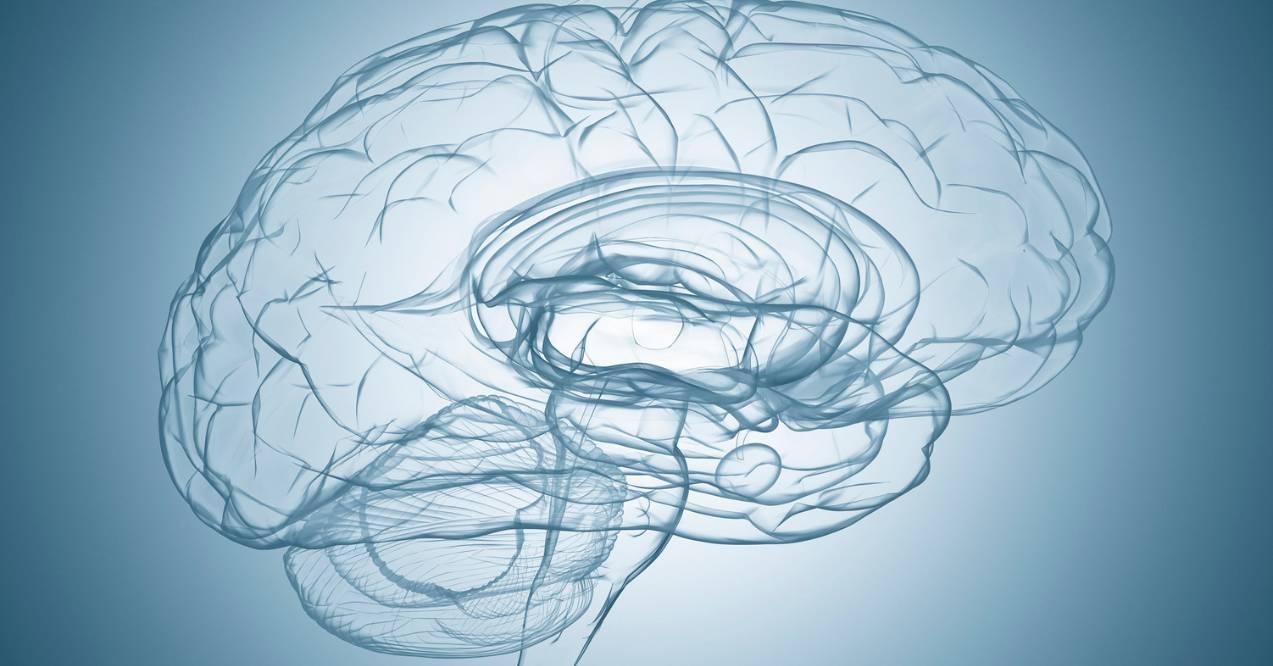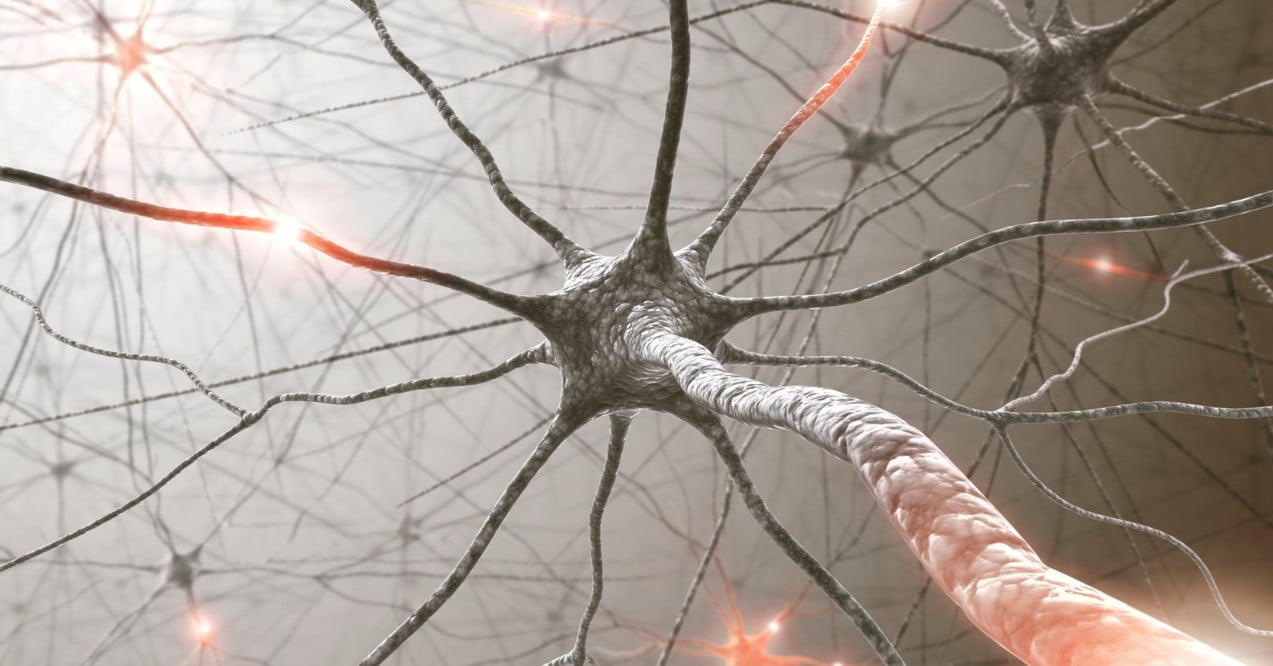How Does Aging Affect the Nervous System?
Trying to find out how aging affects the nervous system? Find everything you need to understand this part of aging and invest in your future health here.


As you grow older and start experiencing muscle weakness, memory loss, persistent headaches, or double vision, you may begin to wonder, “How does aging affect the nervous system”? Unlike what we see in movies, where anything is possible, including remaining young forever, the same is not possible in the real world.
As your skin ages and fine lines begin forming on your face, a much more significant change occurs in your nervous system. For example, your brain function will slowly start to decline, and some parts of the brain may even begin to decrease in size.
If you recall how impressively fast you could think, reason, and act as a child, you’ll realize that your ability to learn and develop complex skills is slowing down as you age. The aging process of the nervous system is inevitable. None of us can escape it. So, does it mean you give up and wait for it to completely fail? Absolutely not!
The Nervous System
To better understand what you can do to rejuvenate your aging nervous system, let’s first have a look at the parts that comprise it, how it functions, and the effects of aging. The nervous system consists of a complex nerve network, which regulates and manages your body’s functions, allowing you to perceive, react, and adapt to what’s happening in your environment. More so, it’s divided into the following parts:
Central Nervous System (CNS)
This part of the nervous system consists of your spinal cord as well as your brain. Your brain, nestled within your protective skull, acts as the command center of your body. It processes information, makes decisions, and initiates responses. On the other hand, your spinal cord, encased within your vertebrae, serves as the communication highway of your body. It transmits messages between your brain and the rest of your body.
Peripheral Nervous System (PNS)
The peripheral nervous system is simply the section of nerves that extend out of your central nervous system to reach every corner of your being. It’s divided into two more systems; the somatic nervous system, which controls all your voluntary actions and transmits sensory information from your senses to the CNS; and the autonomic nervous system, which controls all of your involuntary processes. This part of the system is in charge of managing your heartbeat, digestion, and breathing.
Neurons
Additionally, the nervous system has special cells called neurons. Neurons are essential components that convey information using electrical and chemical impulses to the rest of your body. They communicate with each other through synapses, transmitting signals that travel throughout your nervous system, enabling you to feel things, tense and relax your muscles, think, and even feel emotions.
The Dynamics of the Aging Process
Are you curious about the neurological changes associated with aging? The first thing you need to know is that your body experiences a complicated series of changes as you grow older, which all add to the dynamics of the aging process. In fact, several biological theories explain why the human body weakens with age, particularly the nervous system. According to certain studies, various biological theories exist that explain the aging related to the nervous system. They include:
The Free Radical Aging Theory
According to this theory, your body accumulates damage to the cells over the years, which is caused by free radicals generated during normal metabolic processes. As time passes, the oxidative stress caused by the chemical molecules damages your cellular components, including your DNA, proteins, and lipids. Also, the oxidative process can likely harm the neurons and change the way they function, causing cognitive decline and neurodegenerative diseases.
Neuroendocrine Theory of Aging
This theory focuses on hormonal changes that occur during the aging process. Over time, the production and regulation of hormones in your body, such as growth hormones, glucose hormones, and sex hormones, gradually decreases. This shortage in your body can affect various processes, including neural function. For example, a decline in female estrogen and male androgen hormones can result in cognitive decline and a high risk of neurodegenerative illnesses.
How Does Aging Affect the Nervous System? Understanding Neurological Changes
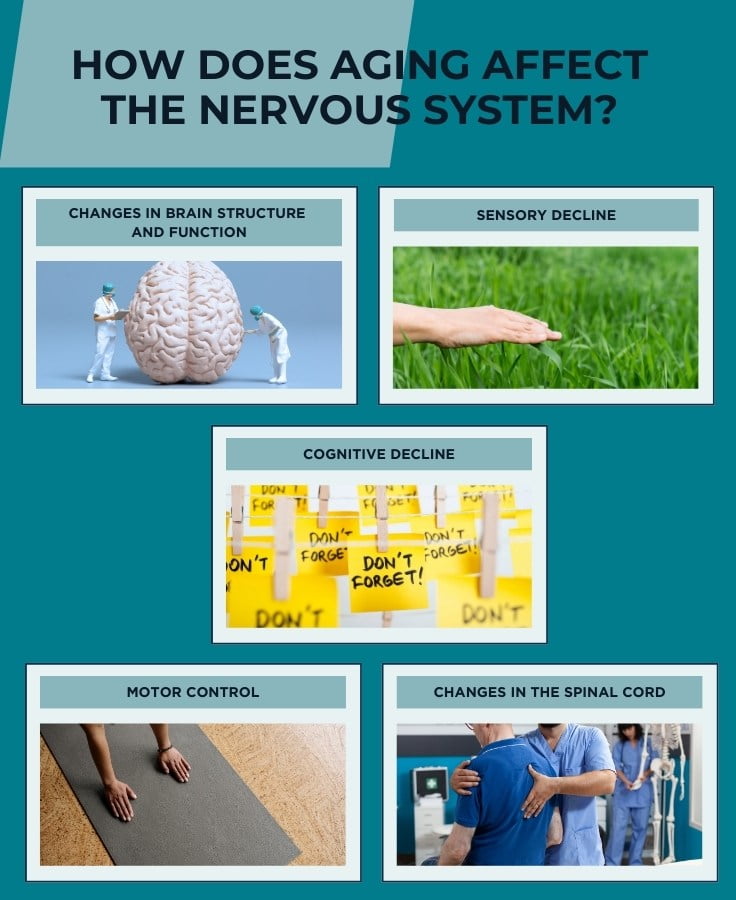
So, how does aging affect the nervous system? In this section, we’ll see how the central nervous system declines gradually and how it impacts the parts that comprise it. Everyone’s central nervous system deteriorates through aging due to several factors. Firstly, neurons and synaptic connections tend to degrade over time. As a result, brain transmission efficiency suffers due to the weakening of the synapses, reducing effective impulse signaling.
Additionally, changes in brain structure brought on by aging may affect how your central nervous system works. For example, you might experience a decrease in blood flow to the brain, leading to a lower supply of oxygen and nutrients to the rest of your body. If this happens, you’ll be more prone to developing neurodegenerative disorders and cognitive impairment.
1. Changes in Brain Structure and Function
As mentioned earlier, your brain changes as you age, which may affect its structure and function. One of the notable changes is in the nervous system’s anatomy and physiology, particularly the loss of neurons. This change means that the number of neurons in some parts of your brain may slowly decrease over time, leading to memory loss and cognitive slowness.
Reduced brain volume is another change that happens over time. Your brain may atrophy or shrink as you become older, specifically the frontal cortex and hippocampus. These two brain areas significantly influence basic cognitive functions like decision-making and memory formation. Therefore, if your brain undergoes atrophy due to age, you’ll likely suffer from memory loss, difficulty paying attention, and difficulty solving problems.
2. Sensory Decline
Another change that can occur in your body with age is sensory decline. This aging of the nervous system affects your senses including touch, vision, and smell, becoming poorer as time passes. For instance, the lens of your eyes may become inflexible, impairing your ability to see up close or far away. Additionally, hearing loss can result from damage to the hair follicles located in the inner ear.
As if that’s not enough, your ability to smell can also deteriorate, making it more difficult to identify varying odors. Below is a closer look at how sensory changes can affect your experience of the environment, making it challenging to adapt to your surroundings and new reality.
Vision: A number of things can cause eyesight deterioration as you age. For example, as you age, collagen diminishes, reducing the flexibility of the eye’s lens and making it challenging to focus on things that are close, like reading a book or a menu. In addition, the muscles that regulate the focus and size of the pupil get weaker, slowing your reaction to changes in lighting conditions, such as glare from on-coming traffic.
You can also develop other age-related eye diseases, such as cloudy formations and a deteriorating macula, which causes vision loss. If you want to improve how you manage your vision as you grow older, periodically assessing your eye health and getting the necessary vision treatment is the way to go.
Hearing: Hearing loss is a common occurrence with age. This issue starts occurring because the hair cells in your inner ear in charge of turning sound vibrations into electrical signals can degenerate over time, causing your hearing to decline. Additionally, as people age, they may start hearing ringing in their ears, having trouble understanding speech, or distinguishing sounds in noisy surroundings. To address these issues, many people seek out the best supplements for tinnitus, as these can support ear health and potentially reduce the symptoms associated with hearing loss
This degeneration may also influence hearing loss in the auditory nerve and the brain’s capacity to process sound.
Taste: Another way aging affects your nervous system as well is in its ability to register taste. Your capacity to recognize and identify flavors may suffer due to a decrease in the number and sensitivity of taste buds on your tongue.
Also, a decline in the level of saliva production can affect how your food tastes because your saliva helps to break up food particles and transport the flavor molecules to your taste buds. Not being able to savor your favorite drinks or foods sure sounds like a tough time.
Smell: How does aging affect the nervous system when it comes to the smell? Well, it can reduce your ability to perceive and smell scents. Can you imagine being unable to smell the intoxicating aroma of your morning coffee or favorite perfume ever again?
Your ability to notice and recognize various smells may suffer if the olfactory receptors in your nose are not as sensitive as they used to be when you were younger.
Another cause of reduced smell sensitivity with age is a reduction in the number of olfactory neurons. As more neurons suffer nerve damage through aging, the number of olfactory neurons decreases, making it difficult to recognize aromas.
Moreover, changes in the nasal passageways and mucus formation can limit the capacity of the scent molecules to reach the olfactory receptors.
Touch: A decrease in the quantity and sensitivity of sensory receptors in your skin can cause a decline in your sense of touch. This issue shows that your ability to perceive sensations may decrease as the nerve endings in charge of detecting pressure, warmth, and pain in your skin become less receptive.
Additionally, your sense of touch can be affected by changes in the suppleness and thickness of your skin with age. For instance, your skin can thin out and become more delicate, making it harder to sense delicate textures or subtle feelings. Age-related ailments like peripheral nerve damage can also affect your sense of touch.
3. Cognitive Decline
The natural aging process is one of the key elements that affect the structure and function of the brain, often leading to cognitive decline. However, other aspects of aging, such as genetics, lifestyle decisions, and underlying medical disorders, can also result in cognitive decline.
This reason is why it’s crucial to maintain a healthy and active lifestyle throughout your youth, to minimize chances of developing complex cognitive decline during old age. Therefore, avoid a sedentary way of life, poor diet, a lack of mental stimulation, and social isolation because they will cause more harm than good in the end.
Long-Term Memory: Over time, the hippocampus may shrink or become less effective due to old age. This shrinking will, in turn, affect your brain’s ability to store and retrieve memories, leading to long-term memory loss. Age-related changes in the connection between various brain regions may also impact long-term memory functions.
Hormonal changes, decreased blood supply to the brain, and increased oxidative stress are other factors related to age causing long-term memory loss. Chronic medical problems, recreational drugs, and lifestyle choices like stress, sleep deprivation, and inactivity can also affect your long-term memory performance.
Therefore, if you want to maintain a sharp memory in your old age, ensure that you get enough sleep and rest. Most importantly, stay away from recreational drugs because they cause significant damage to your brain cells, heavily affecting your long-term memory over time.
Short-Term Memory: There are many reasons why your short-term memory declines as you get older. The natural aging process is one element that affects the structure and operation of the brain. However, changes caused by age in the prefrontal cortex, a brain part involved in short-term memory and attention, can lead to sluggish neural processing. This occurrence affects your capacity to temporarily store and register details in your mind.
Age-related changes in your cognitive abilities can also affect short-term memory. If your capacity to process information speedily and pay attention is deteriorating, it may lead to short-term memory loss. Moreover, hormonal changes, decreased blood supply to the brain, and increased oxidative stress are other causes of short-term memory loss.
Long-term health issues, stress, and sleep deprivation can also affect memory performance. Don’t wait until the complete deterioration of your short-term memory to seek help.
4. Motor Control
Motor control might deteriorate as you become older for a number of reasons. Natural aging can cause changes in the nervous system, such as a reduction in the number of neurons and levels of neurotransmitters.
These changes might impact coordination and balance, which can cause your muscles to operate more slowly and in an unbalanced way. Motor control issues can also appear due to age-related swollen, achy joints, muscular loss/wasting, and neurological abnormalities.
As a result, walking, reaching, and keeping stability can be hard because you’ll have less strength, flexibility, and response time. As you age, you can maintain staying mobile and independent with regular physical activity, strength training, balance exercises, and taking supplements.
5. Changes in the Spinal Cord
The spinal cord is a critical component of the central nervous system, and it can experience age-related changes such as degeneration, reduced blood flow, and spinal cord cell death. The way your brain and the rest of your body communicate through nerve signals can change as a result of these alterations. You may experience reduced reflexes, delayed motor responses, and a decline in sensory perception.
Age-related changes in the spinal cord can accelerate problems with balance, coordination, and overall motor function. Luckily, regular exercise, a balanced diet, and upholding a positive way of life can enhance your spinal cord health and minimize changes brought on by aging.
The Peripheral Nervous System’s Decline
Your peripheral nervous system’s deterioration due to aging may lead to slower nerve conduction and reduced sensation. If the myelin sheath (which covers, protects, and insulates nerve fibers) undergoes modifications due to age, then your peripheral nervous system will decline.
As the myelin loses effectiveness with time, it slows down the conduction of nerve impulses, leading to delays in reflex response or a feeling of “sluggishness” in your movements.
Additionally, the PNS may experience changes in your body’s sensory receptors, causing them to lose some of their sensitivity, such as numbness and tingling in the hands and feet or muted smells, tastes, or touch.
You may also experience sensations of burning, stabbing, and severe discomfort of misfiring nerves. More so, your overall coordination, balance, strength, and capacity to perceive and react to sensory stimuli can all be affected if your PNS experiences the effects of aging.
The unique thing about the PNS is that each person will experience a decline at a different rate and degree. However, you can slow down this decline through regular physical exercise, leading a healthy lifestyle, and getting the right medical attention.
1. Autonomic Nervous System Function
According to research, the autonomic nervous system (ANS), which controls automatic bodily functions like digestion, blood pressure, heart rate, and body temperature, may also become less effective as you age. Your ability to adjust to changes in both internal and external surroundings may suffer as a result. For example, you might find it challenging to control your body temperature, respond to stress with a slower heart rate, or control your bladder.
Also, you might experience gastrointestinal issues or difficulties when changing positions from sitting to standing without feeling dizzy, confused, weak, or fainting, which are age-related. Stress management, regular exercise, and maintaining a healthy lifestyle can promote your body’s ANS function and lessen age-related deterioration.
2. Muscle Function
Your muscle function can weaken over time for a variety of reasons. For example, it can occur due to a slow loss of muscle mass, muscle strength, and flexibility caused by aging. Altered hormone levels, less physical activity, and lower protein synthesis in your body can also influence muscle loss. If you’re losing muscle functionality, you’ll begin to feel weak, have less endurance, and have trouble with balance and coordination.
Regular exercise, such as weight training and aerobic exercises, can help maintain your muscle mass, increase your strength, and slow the deterioration in muscular function that comes with aging.
3. Regeneration Capacity
The ability of your body’s tissues and organs to regenerate can diminish as you age for various reasons. First, your body’s capacity to repair and restore damaged cells and tissues gradually decreases. This weakening capacity occurs because your stem cells, which are in charge of tissue regeneration, become fewer in number and less effective over time.
Also, the signaling pathways of your nerves can change and slow down due to aging, hindering the regenerative processes. As a result, your recovery time could lengthen in case of injuries, and your body might have trouble recovering from illnesses.
Nervous System Disorders
So, in terms of illnesses, aging also leaves its mark on the nervous system in several ways. As you age, there is a higher likelihood of developing neurodegenerative illnesses and cognitive impairment, according to a study article published in the Journal of Neurology, Neurosurgery, and Psychiatry. Cognitive decline, memory loss, and motor deficits, which involve the gradual destruction of neurons are becoming more common with aging.
Additionally, you may be prone to peripheral nerve degradation, which affects the peripheral nerves and can result in numbness, tingling, and weakness in the extremities. If you have a declining nervous system, you may also be prone to a life-threatening event when oxygen-rich blood is blocked from reaching the brain, resulting in neurological abnormalities. On top of that, pro-inflammatory molecules from other immune-induced illnesses can also attack your already deteriorating nervous system.
Promoting Healthy Aging

Healthy aging is quite advantageous as you go through life. It allows you to remain physically active, keep your mind sharp, and maintain your strength and mobility while lowering your risk of contracting chronic illnesses and age-related problems. Below, you’ll find a series of approaches you can take to ensure you have healthy aging. Remember, a combination of these will guarantee your well-being and overall happiness.
Regular Physical & Mental Activity
As you age, you must maintain regular mental and physical activities to remain sharp. Physical activity lowers your chance of developing weak muscles and coordination problems. It helps avoid injuries by maintaining and improving your strength, flexibility, and balance.
It enhances your bone density, supports your heart’s health, and limits your risk of developing illnesses like heart ailments and impaired blood sugar metabolism. Additionally, being physically active improves your cognitive performance, lowers your stress levels, and improves your happiness in life.
On the other hand, mental activity is equally essential for good aging. Reading, solving puzzles, picking up new skills, or engaging in social interactions can stimulate your brain and help keep it sharp for a very long time. This reason is why you sometimes spot older people playing chess.
It keeps them mentally strong and active while lessening their chances of cognitive decline. Maintaining your physical and mental health pays out because you can enjoy a higher quality of life as you become older, maintain your independence, and improve your general well-being.
Balanced Diet
Healthy aging also means taking a balanced diet constantly throughout your life. Although it’s not a crime to eat some fries and burgers once in a while, it’s essential to give your body the nutrients it needs as you age. Furthermore, your body’s nutritional requirements may vary as you grow older. Therefore, ensure your balanced diet consists of healthy fats, plenty of fruits, whole grains, and vegetables.
Eating well lowers your risk of developing chronic illnesses and maintains bone health. A well-balanced diet that provides adequate vitamins, minerals, and antioxidants can also improve your digestive, immunological, and cognitive health.
Social Engagement
Even if you’re an introvert, some social involvement can benefit you in the long run. Keeping up social ties and being active in interpersonal interactions helps fend against depression and lonely feelings. It offers a feeling of support, unity, and belonging, which is excellent for mental health.
Regular social contact can improve your cognitive performance, stimulate your mind, and even reduce your chances of cognitive decline. Therefore, if you want to minimize your risks of cognitive and neurological decline during old age, pick up your phone and call or text your friends. Engaging with friends, family and participating in community activities will help you feel better emotionally, reduce stress, and leave you feeling much younger.
Health Checks
As you grow older and wiser, it is critical to have routine health exams to keep up with the changes in your body. Regular health monitoring lets you spot problems and seek treatment before they escalate. Moreover, you can use health checks to manage chronic problems, screen for diseases, check vital signs, and assess general health.
They provide you the chance to talk about any symptoms or changes you may have seen with your doctor and obtain the necessary medical treatment. You can take charge of your health, make wise decisions, and proactively manage your well-being with the help of routine health checkups.
Dietary Supplements for Nervous System
One of the most proactive ways of promoting healthy aging and taking care of yourself is with the Nerve ReGen Formula from PureHealth Research. Whether you’re in your late 70s and beyond or just entered your late 30s, this supplement is formulated to maintain a healthy nervous system and promote well-being. It helps improve nerve reformation, supports and accelerates nerve regeneration, rebuilds myelin sheath insulation, restores deficient cellular nutrients for renovating stimulus, and helps deter nerve decay.

The Nerve ReGen Formula is a powerful supplement recommended by industry experts like Dr. Holly Lucille, ND, for its effectiveness for nerve health. It contains the following ingredients:
- Oat straw extract
- Riboflavin
- Passionflower herb extract
- Vitamin D3
- Feverfew extract
- Benfotiamine
- Vitamin B12
- Baical skullcap root extract
- Vitamin B6
Some of the key benefits of the Nerve ReGen supplement include the following:
- Promote and accelerate nerve regeneration
- Optimize signal speed between the neurons
- Promote healthy blood flow and nutrient delivery to the brain
- Reduce stress and tension
- Reduce skin itchiness, discomfort, and irritation
The Nerve ReGen Formula is a full-spectrum formula designed to target nerve health at the cellular level. To enjoy the full benefits of this impressive supplement, take four capsules every day, before or after eating.
Take the supplement with about 8 oz of water and eat healthy fats such as nut butter, fish, and avocado to achieve excellent results. Are you ready for a life-changing nerve supplement? Buy the Nerve ReGen Formula today and reduce the effects of aging on your nervous system.
Final Thoughts
How does aging affect the nervous system? We’ve seen how growing older causes this critical system to decline over time, potentially leading to neurological and cognitive impairment. Although everyone ages differently, the rate of nervous system decline varies, depending on their genetic makeup and how well they take care of their bodies over time.
Do you want your nervous system to remain healthy and function even in old age? In that case, it’s vital to maintain a healthy aging lifestyle by having a balanced diet, working out regularly, going for frequent checkups, maintaining a social life, and taking helpful supplements for nervous system. Reach out to PureHealth Research today to order the Nerve ReGen Formula and invest in your future health.
Sign up for our Healthy Living newsletter!
Advertisement. This site offers health, wellness, fitness and nutritional information and is designed for educational purposes only. You should not rely on this information as a substitute for, nor does it replace, professional medical advice, diagnosis, or treatment. If you have any concerns or questions about your health, you should always consult with a physician or other health-care professional. Do not disregard, avoid or delay obtaining medical or health related advice from your health-care professional because of something you may have read on this site. The use of any information provided on this site is solely at your own risk.
